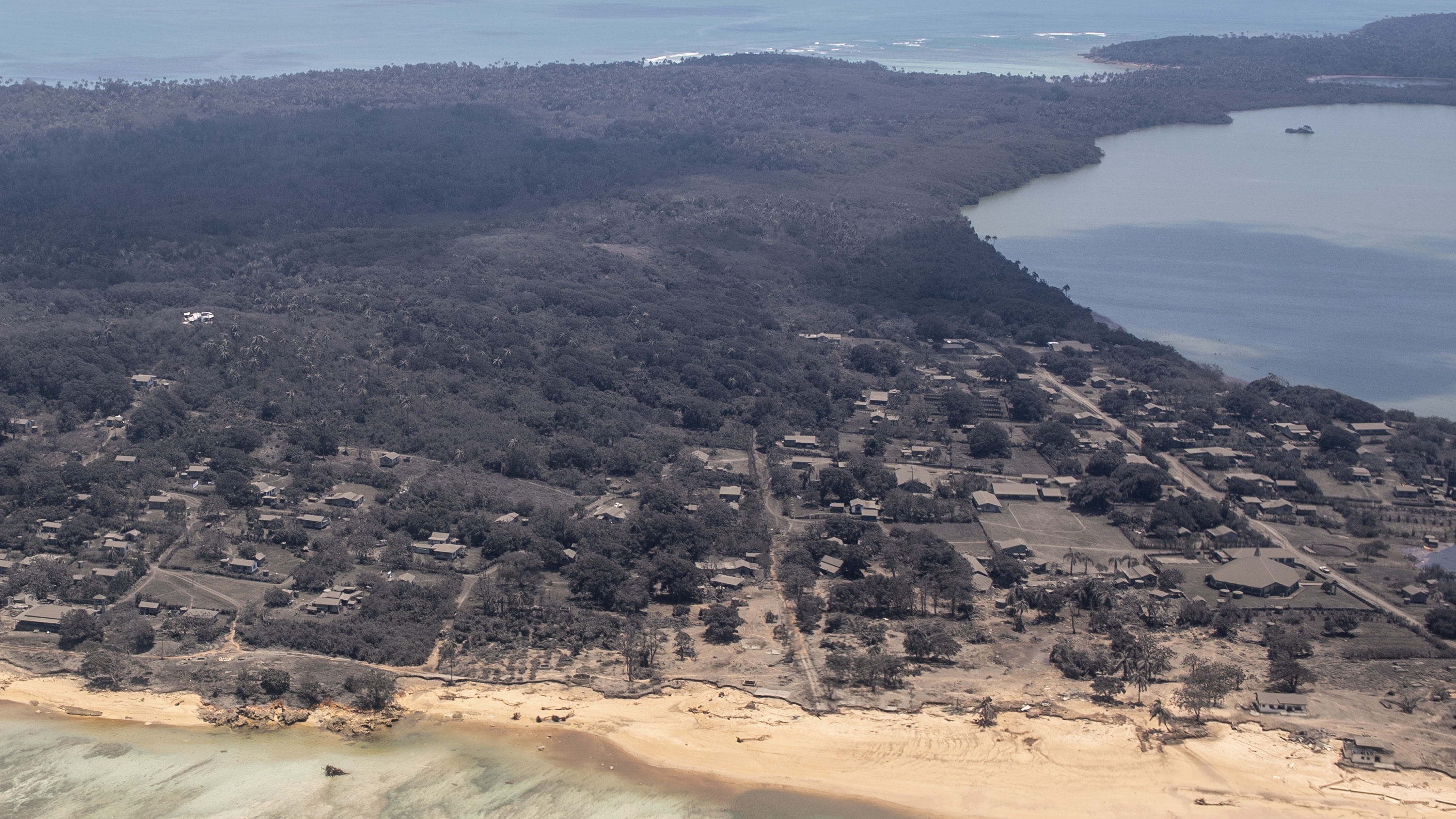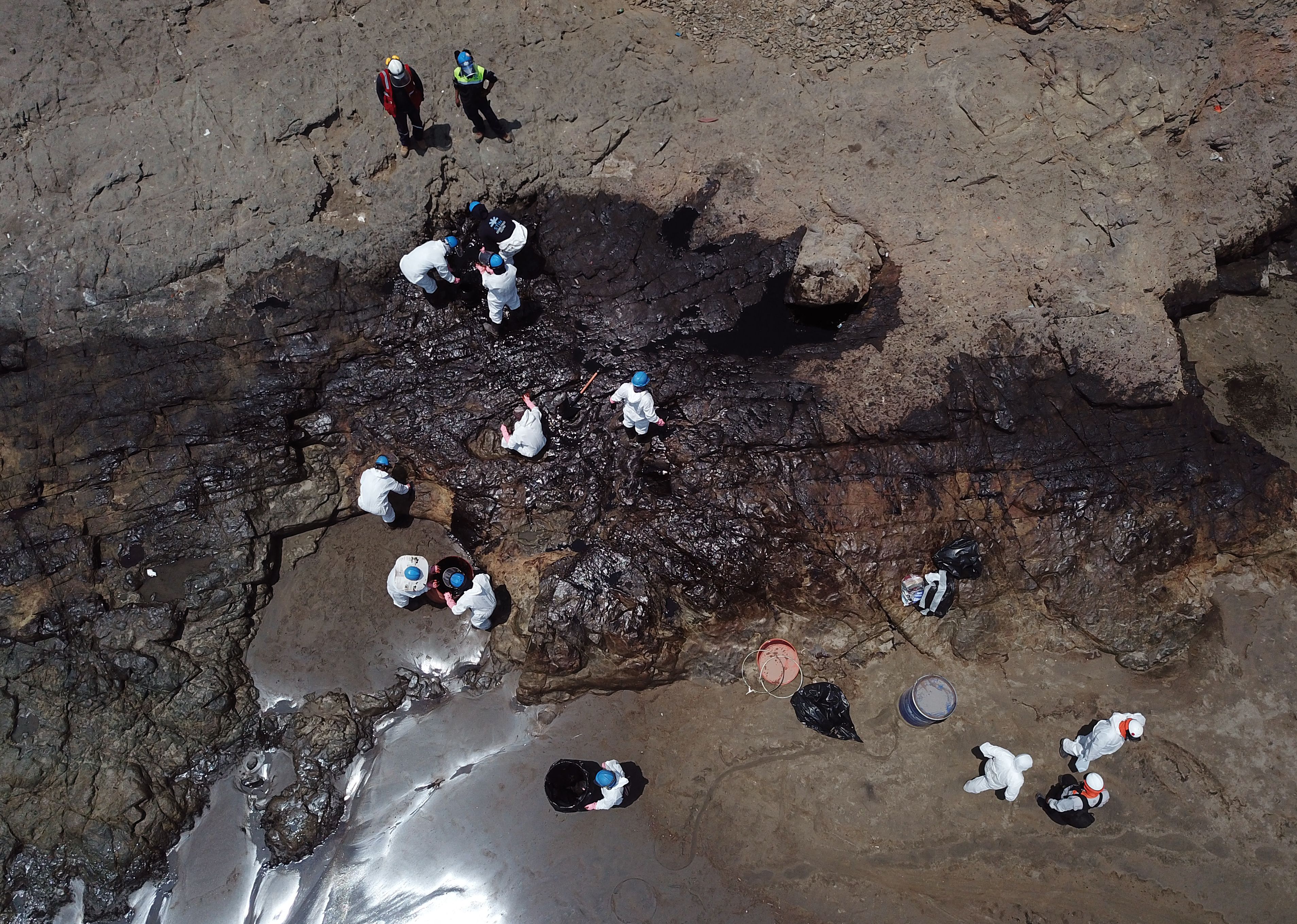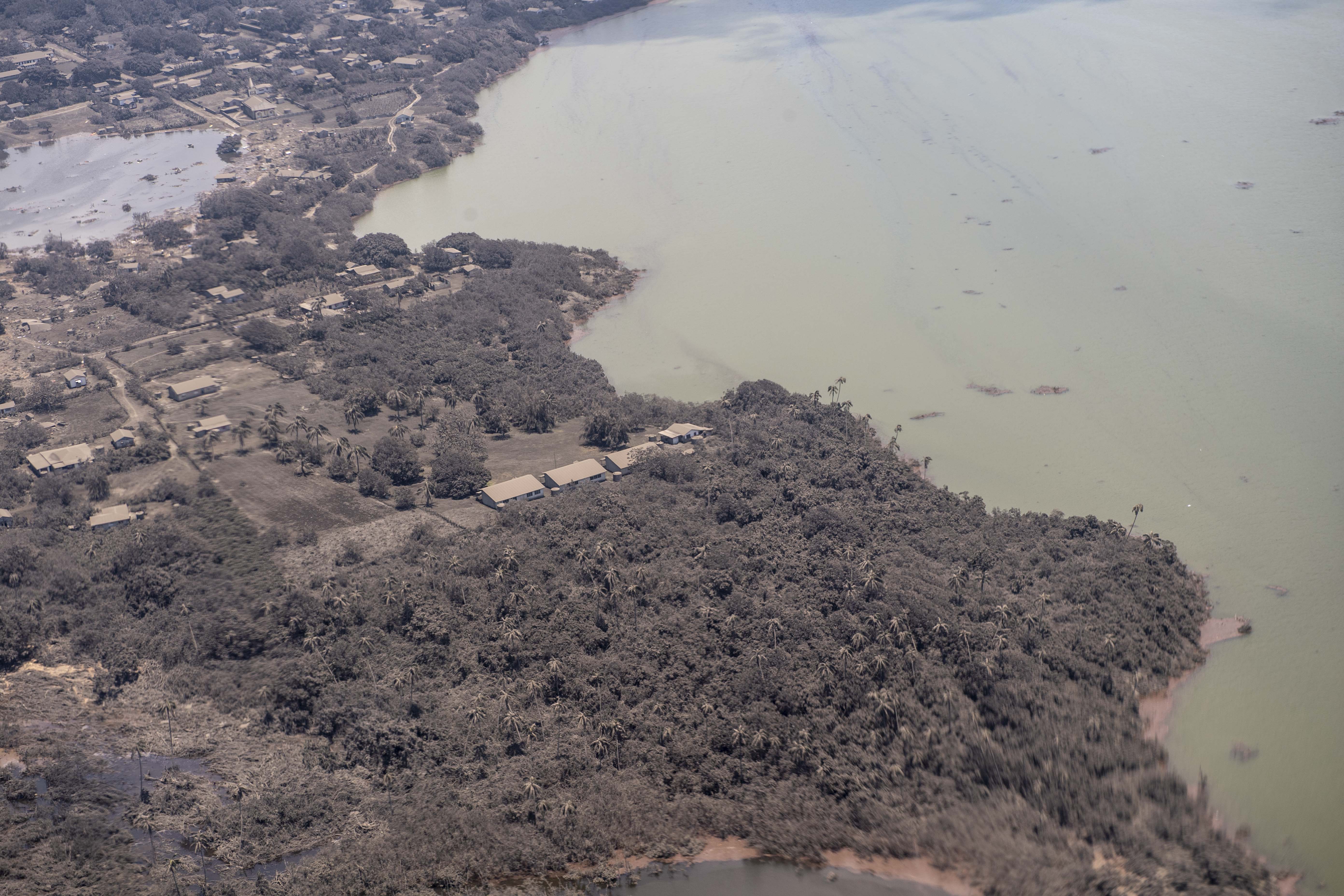What next for Tonga after deadly volcano eruption?
Thick layers of ash hamper relief effort as scale of damage emerges

A free daily email with the biggest news stories of the day – and the best features from TheWeek.com
You are now subscribed
Your newsletter sign-up was successful
Tonga has been hit by an “unprecedented disaster”, the authorities have warned as the island nation assesses the trail of destruction left by a tsunami triggered by an underwater volcanic eruption.
In its first major update since the eruption on Saturday, the Tongan government confirmed that at least three people – two nationals and a British woman – had died in the disaster.
Aid efforts have been “hampered by ash falling from the volcano”, said the BBC. Volunteers have reportedly been sweeping the runway of the main airport in capital Nuku’alofa, on the main island of Tongatapu, “to allow planes bringing much needed drinking water and supplies to land”. But communications remain “majorly disrupted” after “the single underwater cable connecting Tonga to the rest of the world was severed”, the broadcaster added.
The Week
Escape your echo chamber. Get the facts behind the news, plus analysis from multiple perspectives.

Sign up for The Week's Free Newsletters
From our morning news briefing to a weekly Good News Newsletter, get the best of The Week delivered directly to your inbox.
From our morning news briefing to a weekly Good News Newsletter, get the best of The Week delivered directly to your inbox.
‘Extensive damage’
Leaked photographs captured by the New Zealand Defence Force for the Tongan government show that some areas of the country – divided into the three main island groups of Tongatapu and Ha’apai and Vava’su – sustained “catastrophic” damage during the tsunami, while “others were relatively unscathed”, The Guardian said.
In the worst affected regions, “a large number of buildings” are “missing” and many areas remain “blanketed with ash” following the eruption of the Hunga Tonga-Hunga Ha’apai volcano, 40 miles north of the capital.
Notes on military photos of Atata island said that “remaining structures probably had flood damage. Multiple trees were uprooted, with debris throughout.”
Fonoifua island was said to have sustained “extensive damage… with all but the largest buildings destroyed or severely damaged”, while Mango island, a low lying area with a population of 69, was assessed as having “catastrophic damage”.
A free daily email with the biggest news stories of the day – and the best features from TheWeek.com
On Monday, the UN reported a distress signal from Mango island, “prompting concern for inhabitants”, The Guardian said.
Following the eruption at sea, “the afternoon skies turned dark within minutes after plumes of gas, smoke and ash ripped through the ocean surface and spiralled into vast debris clouds more than ten miles high”, said The Times.

“Terrified residents fled by foot and car for higher terrain”, with some later telling reporters that they “thought bombs had exploded as sonic booms crackled during the eight-minute eruption”.
The brother of a British woman swept away by the tsunami confirmed yesterday that her body has been found.
The family of Angela Glover, 50, had “appealed for information on her whereabouts”, Sky News reported. The family said in social media posts that she and her husband, James, went home to collect their dogs when the tsunami hit.
Glover’s brother, Nick Eleini, told the broadcaster that they were “devastated” by her death.“I haven’t got the words in my vocabulary to even describe how we're feeling at the moment,” he said.
“This is just a terrible shock that’s happened to us. We’re ordinary people, stuff like this doesn’t happen to people like us, but then, it does.”
Rebuilding operation
The full “extent of the destruction and casualties” remains “unclear after communications collapsed on the main island of Tongatapu”, with no internet connectivity, The Times reported.
New Zealand’s Prime Minister Jacinda Ardern warned on Saturday that Tonga was in urgent need of clean water supplies owing to contamination caused by the ash cloud.
Officials and volunteers were still “desperately working to clear thick layers of ash from the international airport’s runway on Tuesday so that planes could bring clean water and aid”, The Telegraph said.
While Fuaʻamotu International Airport remains intact, Australia “said the ash covering the runway must be cleared before it can land a C-130 military plane with emergency supplies”.

The Tongan government has declared a state of emergency, but the recovery effort is being complicated further by “strict Covid-19 restrictions that only allow Tongan citizens and permanent residents to enter”, the paper added.
The UN Office for the Coordination of Humanitarian Affairs said on Monday that it “stands ready to provide support” but warned that “further volcanic activity cannot be ruled out”.
The co-chair of a Tongan relief group told a New Zealand news website that countries waiting to contribute to the rebuilding effort “should wait until it is clear what the nation needs”.
New Zealand Labour MP Anahila Kanongata'a-Suisuiki, who is of Tongan descent, told Stuff that “we have seen from past relief efforts that people donate what is not actually needed in Tonga”.
“We just want to send things that are needed,” she said. “We understand [Tongan families in New Zealand] love their families – we have to be practical about what we can do. It’s a reflection of our country – as soon as people heard the news they made contact.”
Kanongata'a-Suisuiki added: “All I could think about when I saw the plumage of the ash cloud is that my village had been wiped.
“We can rebuild. Lives are the most important thing; we can rebuild.”